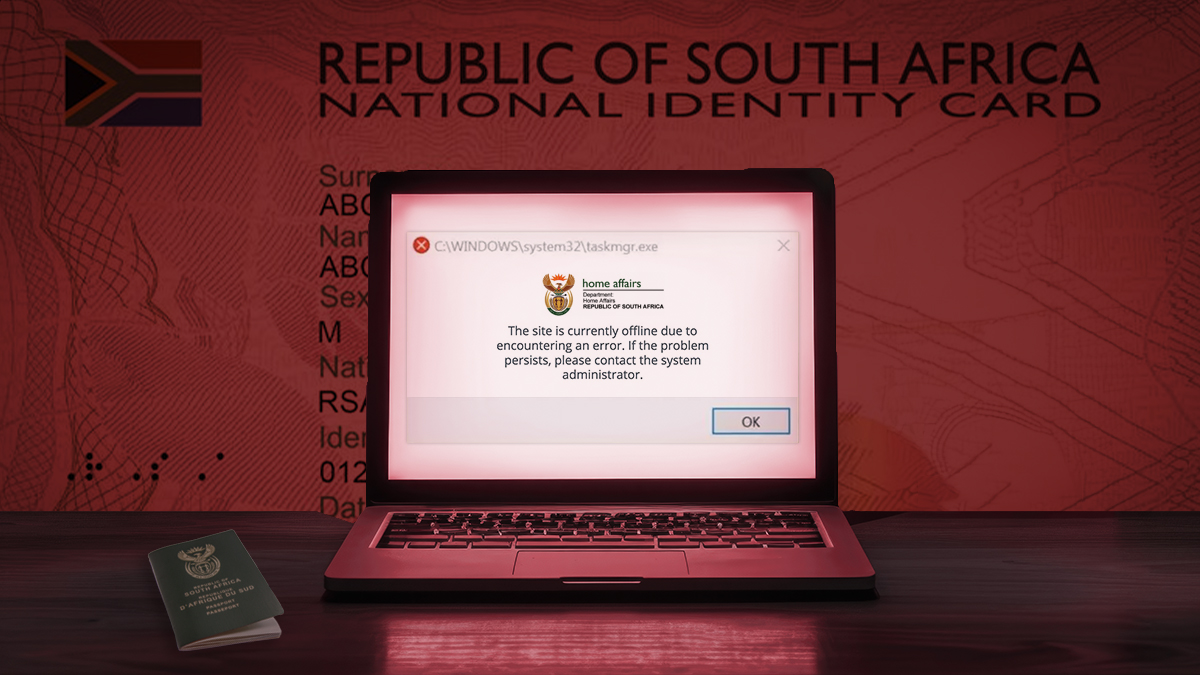Competition Tribunal publishes full reasons for blocking R13-billion Vodacom-Maziv deal

The Competition Tribunal has issued its reasons for blocking Vodacom from acquiring a 30% to 40% stake in Vumatel and DFA’s parent company, Maziv, for upwards of R13 billion in cash and assets.
Three years after Vodacom and Maziv first announced the deal, the Tribunal delivered its order prohibiting the transaction on 29 October 2024.
Under its governing law, the Tribunal was supposed to issue its reasons within 20 business days. However, the watchdog said it was impossible to deliver its full report within the prescribed deadline due to the complexity of the matter.
It explained that the merger record comprises at least 21,944 pages, with the trial bundle consisting of some 14,307 pages, excluding other annexures and heads of argument.
The Tribunal said its full reasons comprise more than 350 pages. The public summary it provided to media was over 6,700 words long. However, it summarised its ruling as follows:
“The proposed transaction’s anti-competitive effects will be permanent,” the Tribunal said.
“The merger-specific public interest benefits of the proposed transaction, on the other hand, are limited in duration and do not outweigh its negative competition effects that relate to various relevant markets and that will ultimately impact millions of South African consumers that will increasingly in the future be making use of data/internet services.”
The Tribunal said third parties raised several concerns about the transaction.
These included market consolidation, horizontal concerns, vertical input and customer foreclosure, bundling, durable first mover advantage concerns, 5G-based concerns, removal of a competitor, information exchange concerns, and concerns about open access conditions.
It said most third parties that made submissions were of the view that the proposed transaction should be prohibited and that no remedies would suffice to address those concerns.
However, it also noted that some third parties made remedy suggestions.
Under the terms of the transaction, Vodacom wanted to acquire a 30% stake in Maziv, a company holding the fibre assets of Vumatel and Dark Fibre Africa.
It would pay at least R6 billion cash and contribute its own fibre assets, valued at R4 billion at the time, as well as an additional cash amount depending on Maziv’s valuation when the deal closed.
When the deal was conceived three years ago, the estimated value was R13.2 billion. However, Maziv’s majority owner Remgro recently revealed that the whole structure of the deal would have to be revised.
“We note that a significant portion of this amount relates to assets of Vodacom that will be transferred to Maziv in terms of the deal,” the Tribunal stated.
“This will increase the market position of the largest fibre incumbent in South Africa, Maziv.”
The Tribunal said its evaluation also found that Vodacom, through its significant stake, would have extensive decision-making rights and powers at shareholder, director, and even committee levels at Maziv.
Its stake would also give it extensive powers at Maziv’s subsidiaries and controlled investee companies, the Tribunal stated.
“We explain in our reasons how the merger parties’ commercial and economic incentives are aligned post-merger,” it said.
Real reasons for the deal
The Tribunal said that one of the matters in dispute was the true rationale for the transaction.
“After considering the strategic evidence and factual witness testimony, including cross-examination, we concluded that Maziv’s true rationale for the proposed transaction is defensive in nature,” the Tribunal stated.
It said that DFA was scared that Vodacom would establish its own fibre and tower infrastructure companies that would disintermediate it.
Regarding Vumatel, Maziv was concerned about Vodacom introducing pricing pressures to increase market share, potentially resulting in a national price war absent the proposed deal.
“From Vodacom’s side, we found that its rationale is that it wants to have a significant stake in the future fibre revenues of the largest dark fibre and FTTH provider in South Africa,” the Tribunal stated.
This is given its very large amount of Value at Risk (VAR).
“VAR refers to Vodacom’s estimates of the loss of mobile data spend within a household if they move to fibre,” the Tribunal explained.
Considering the hypotheticals
The Tribunal explained that in evaluating the transaction, it considered what would happen if the proposed transaction would not take place.
“Based on the strategic documentary and oral evidence, we found that Vodacom is a competitive threat to Maziv and that it would increasingly put itself in competition to Maziv absent the deal,” the Tribunal said.
It added that in considering this scenario, it took into account its impact in lessening competition in FTTH, and the removal of Vodacom as a future competitor in metro fibre and FTTB.
The Tribunal also contended that Vodacom would not compete as aggressively with its fixed wireless access 4G and 5G products after buying a stake in Maziv, lessening overall competition in South Africa’s fixed broadband space.
“Furthermore, as the proposed merger would be permanent, it will likely entrench Maziv as the leading FTTH provider in South Africa going forward, and the harm to competition together with the foreclosure effects that cannot effectively be remedied will grow over time,” it said.
“The proposed transaction enables both the merger parties to strengthen their market positions and reinforce and grow existing concentration in the telecommunications sector as a whole.”
The Tribunal also said that the merger parties’ own strategic documents reveal that bundling remains a key strategic focus.
Bundling refers to combining different products from the merger parties into a single package that gives them an edge over other market players.
“The proposed merger would, due to its size and other advantages from the combination, enable them to execute this strategy,” the Tribunal stated.
“Successful bundling as a result of the merger would further entrench the dominance of Maziv in fibre, and entrench Vodacom’s market position in mobile. Therefore post-merger bundling is a merger-specific concern.”
Other anti-competitive concerns raised by the deal include Vodacom’s potential influence over DFA.
The Tribunal noted that DFA enjoys dominance in the provision of dark fibre infrastructure to network operators, including mobile network operators’ towers.
“Regarding harm to rival mobile network operators (MNOs) that compete with Vodacom we found, inter alia, that DFA’s dominant position in the provision of critical dark fibre inputs for fibre-to-the-site connectivity or mobile backhaul gives rise to an ability to harm MNO rivals,” it stated.
“We further found that the merged entity will have the incentive to foreclose MNO rivals of Vodacom, including through non-price mechanisms, which would have significant harmful effects on these competitors and, ultimately, their customers.”
Proposed conditions to mitigate competition concerns
The Tribunal said the merger parties tendered remedies to deal with several of the competition concerns.
It dealt with these at some length, but ultimately dismissed the vast majority as insufficient.
“Monitoring and enforcing these conditions effectively, will likely place a huge regulatory burden on the Commission and Tribunal given that the conditions are lengthy, extremely complex, cumbersome and highly technical in nature, and furthermore are of infinite duration,” it stated.
“The competition authorities are not in a position to take on this regulatory burden in this sector, and certainly not for an indefinite duration.”
One area where the Tribunal did not make an adverse finding was the merger’s impact on employment.
“The Commission makes no negative findings on the impact of the proposed transaction on employment and the merger parties submit that the proposed merger will not give rise to any retrenchments,” it said.
“We found no reason to disagree.”
Tribunal’s conclusion
“The Act requires us to do a balancing or weighing-up exercise of the anti-competitive effects of the proposed merger and the positive public interest commitments as far as they are merger-specific,” the Tribunal said.
It said that in its balancing of the merger-specific public interest benefits considered collectively, and the anti-competitive effects, the Tribunal considered that the merger-specific commitments as identified end after a certain number of years.
In the case of the merger parties’ commitments to roll out to low-income areas, it said the commitments in after five years.
Certain other merger-specific commitments also end after a set amount of time, but the Tribunal redacted the details.
“In contrast, the effects of the proposed transaction will endure,” the Tribunal contends
“The loss of competitive rivalry at several levels as a result of the proposed transaction, and the likely foreclosure of rivals that cannot be effectively monitored and effectively enforced, is permanent for as long as Vodacom has its shareholding in Maziv.”
































